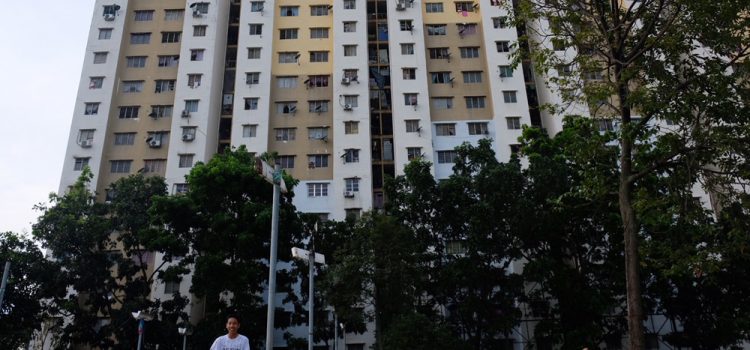Source: Malaysiakini ; Picture courtesy of Alyaa Alhadjri
The need to resort to evicting residents from public housing schemes (PPR), coupled with the high number of applicants for such houses, is a clear manifestation of insufficient supply of such units compared to their demand, said former Penang executive councillor Toh Kin Woon.
Speaking at a workshop titled ‘Understanding and addressing housing issues in Penang’ yesterday, Toh said another issue is the inability of the B40 or M40 groups to buy houses, apartments or flats.
“In the market, of course, there is no shortage of housing. Instead, there is an overhang or oversupply of housing as reported by many property companies.
“This gives rise to the paradox of an overhang co-existing with unsatisfied demand for house ownership,” Toh said during his opening speech at the event organised by the People’s Housing Network, a coalition of local NGOs, including Aliran, Suaram and Parti Sosialis Malaysia
The event was attended by some 50 participants.
Last month, 22 Taman Manggis public housing residents were evicted from their units. They staged a week-long sit-in at Komtar, which houses state government offices, until they were offered alternative housing.
Some of the residents were no longer eligible to live in the units as their monthly incomes had exceeded the limit for such housing, while others failed to pay their rent, married foreigners, or sublet their units.
Penang exco Jagdeep Singh Deo had noted that the waiting list was long for such units.
However, Housing and Local Government Minister Zuraida Kamaruddin said this matter could be resolved by identifying public housing projects to be built in locations such as Gelugor, Teluk Kumbar and Balik Pulau.
Oversupply of expensive houses
Toh said the problem lies in a huge supply of highly priced houses.
Such high prices are due to high costs of land and construction and “desire for maximum profits”, he added.
“In contrast, the capacity of potential house buyers to buy such properties has been restrained by their limited purchasing power.
“House buyers have a need for houses, but such a need has not been backed by adequate buying power. This is obviously a market failure which perhaps requires state intervention,” Toh said.
“Such limited purchasing power is due to a lack of adequate savings to pay the initial down payments, which is exacerbated by the difficulty of many in getting bridging loans from financial institutions,” he added.
“Building properties in far-off places, but without adequate supporting and complimentary services such as convenient public transportation, may not attract buyers, even if they are within their means to buy,” he stressed.
Rethinking housing supply
Toh asked whether the housing supply should be left only to markets, and be driven almost exclusively by the profit motive without any regard for the social motive of housing for the poor.
He further queried if the state should step in by directly providing social housing, either for rental or purchase, such as through building more PPR units complete with social amenities and a strong regulatory and enforcement framework.
“Can housing provision be planned in isolation from public transportation and the creation of growth and job centres nearby?” asked Toh, who was former Gerakan Machang Bubok assemblyperson.
“What about issues of financing such as extension of loans by financial institutions, cross-subsidies, public sector subsidy of private sector provision?
“How about in-situ development of existing houses through public subsidy or redevelopment by private house owners, rather than resorting to forced evictions?” he added.














